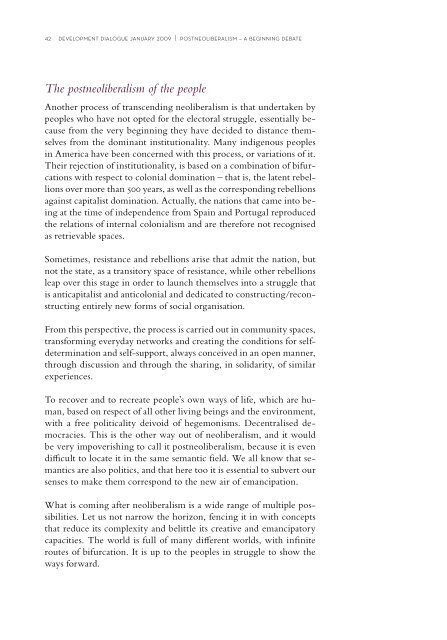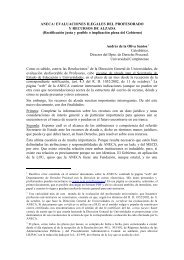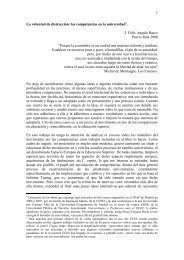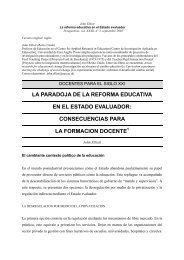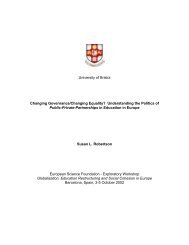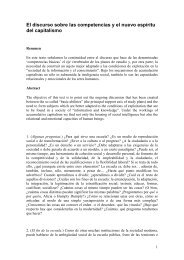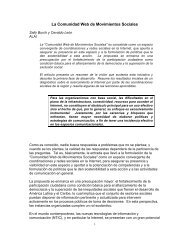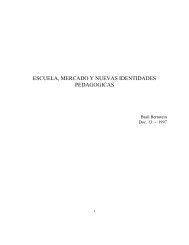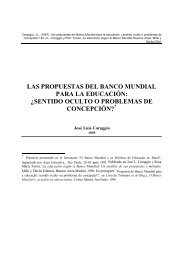no. 51 | january 2009
no. 51 | january 2009
no. 51 | january 2009
- No tags were found...
You also want an ePaper? Increase the reach of your titles
YUMPU automatically turns print PDFs into web optimized ePapers that Google loves.
42 development dialogue <strong>january</strong> <strong>2009</strong> | postneoliberalism – a beginning debateThe postneoliberalism of the peopleA<strong>no</strong>ther process of transcending neoliberalism is that undertaken bypeoples who have <strong>no</strong>t opted for the electoral struggle, essentially becausefrom the very beginning they have decided to distance themselvesfrom the dominant institutionality. Many indige<strong>no</strong>us peoplesin America have been concerned with this process, or variations of it.Their rejection of institutionality, is based on a combination of bifurcationswith respect to colonial domination – that is, the latent rebellionsover more than 500 years, as well as the corresponding rebellionsagainst capitalist domination. Actually, the nations that came into beingat the time of independence from Spain and Portugal reproducedthe relations of internal colonialism and are therefore <strong>no</strong>t recognisedas retrievable spaces.Sometimes, resistance and rebellions arise that admit the nation, but<strong>no</strong>t the state, as a transitory space of resistance, while other rebellionsleap over this stage in order to launch themselves into a struggle thatis anticapitalist and anticolonial and dedicated to constructing/reconstructingentirely new forms of social organisation.From this perspective, the process is carried out in community spaces,transforming everyday networks and creating the conditions for selfdeterminationand self-support, always conceived in an open manner,through discussion and through the sharing, in solidarity, of similarexperiences.To recover and to recreate people’s own ways of life, which are human,based on respect of all other living beings and the environment,with a free politicality deivoid of hegemonisms. Decentralised democracies.This is the other way out of neoliberalism, and it wouldbe very impoverishing to call it postneoliberalism, because it is evendifficult to locate it in the same semantic field. We all k<strong>no</strong>w that semanticsare also politics, and that here too it is essential to subvert oursenses to make them correspond to the new air of emancipation.What is coming after neoliberalism is a wide range of multiple possibilities.Let us <strong>no</strong>t narrow the horizon, fencing it in with conceptsthat reduce its complexity and belittle its creative and emancipatorycapacities. The world is full of many different worlds, with infiniteroutes of bifurcation. It is up to the peoples in struggle to show theways forward.


